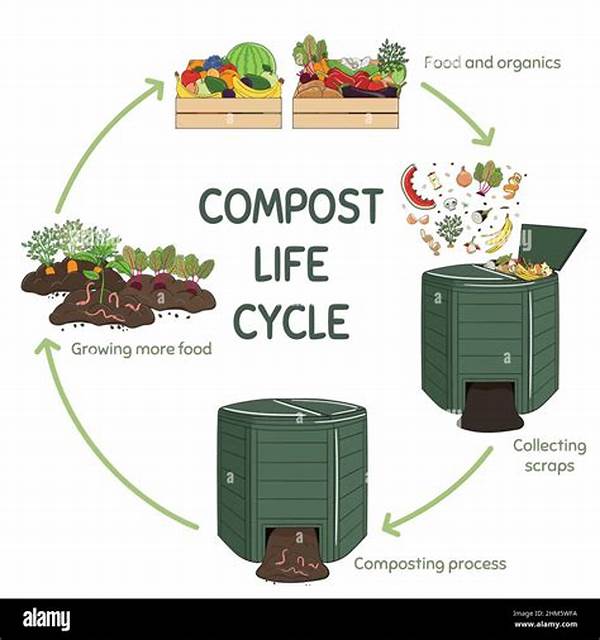Imagine transforming the waste from your restaurant into something beneficial for the environment and, ultimately, your bottom line. Sound too good to be true? Well, it’s not! Organic composting is not only a way to manage waste sustainably but also a gateway to greener business practices. So, if you’re eager to turn yesterday’s leftovers into tomorrow’s treasure, then stay with us.
Read More : Affordable Mobile Trash Containers For Home Use
Processing organic waste from your restaurant into compost is both an art and a science. It involves more than just dumping scraps into a bin! In this enlightening read, we’re not just going to offer a step-by-step guide but also provide insights on how composting can elevate your restaurant’s brand, save costs, and contribute to community well-being. Yes, composting can be that powerful—let’s dive in!
Understanding the Composting Process
The Basics of Composting
Composting is a natural process where organic waste, such as vegetable scraps and coffee grounds, breaks down into nutrient-rich soil. You’ve probably heard it called “black gold” for its ability to enrich gardens and plant life. Restaurants, which generate a significant amount of organic waste daily, can tap into this eco-friendly practice with great ease and efficiency.
Setting Up Your Composting System
So, how to process organic restaurant waste into compost efficiently? Here’s the secret: preparation and system selection. First, determine whether to use an onsite compost system or collaborate with a local composting facility. For onsite composting, you’ll need to set up proper bins and understand the right balance between ‘green’ waste (like fruit peels and vegetable trimmings) and ‘brown’ waste (like eggshells and cardboard).
Implementing a Waste Management Routine
Once your system is in place, developing a routine is crucial. Consider training your staff on sorting the waste correctly and maintaining the compost bins with regular turning and monitoring. Consistency ensures that the organic waste is transformed into usable compost in the shortest time possible.
Benefits of Composting Restaurant Waste
Environmental Impact
The primary benefit is, of course, the significant reduction in landfill waste. Composting helps lower the amount of methane gas released into the atmosphere—a major contributor to climate change. When restaurants adopt composting, they play a direct role in decreasing their carbon footprint.
Economic and Brand Advantages
How to process organic restaurant waste into compost can also be a smart business strategy. By reducing waste disposal costs and potentially creating a selling point with eco-conscious customers, restaurants can enhance their market appeal. Not only does this responsible practice appeal to green-minded patrons, but it might also inspire positive testimonials and reviews.
Read More : Trash Containers For Medical Waste
Enhancing Community Relations
Contributing compost to local community gardens or urban farms can foster community goodwill and establish your restaurant as a local leader in sustainability. This level of community engagement can inspire other businesses and create a network of like-minded, eco-friendly establishments.
Steps for Composting Organic Restaurant Waste
Summarizing the Composting Journey
From Waste to Resource
In understanding how to process organic restaurant waste into compost, it becomes clear that what was once considered mere waste is now a valuable resource. This transformation not only reduces environmental impacts but also saves costs and positions a restaurant as an environmentally conscious leader.
The Power of Community and Sustainability
Through composting, restaurants engage with their community in meaningful ways. Offering the composted material to local gardens or using it to grow fresh produce for the restaurant can foster a cycle of sustainability and cooperation that extends beyond the dining table.
Final Thoughts
The journey towards effective composting starts with understanding and commitment. Once a restaurant sees the benefits of turning organic waste into compost, it can transform its operations substantially. Not only does this lead to environmental conservation, but it also empowers businesses to market themselves as forward-thinking and socially responsible, ultimately driving more customers through the door. So, let’s get started on transforming yesterday’s scraps into tomorrow’s growth!










